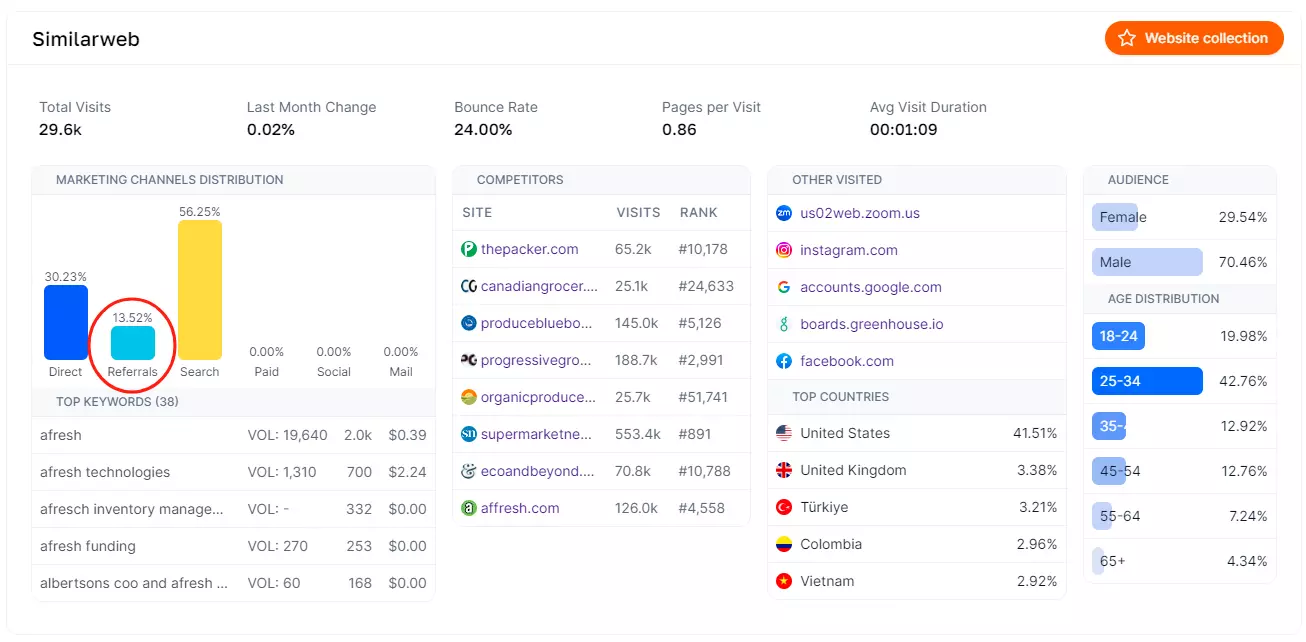
Search Engine Optimization (SEO) is an ever-evolving digital landscape, and within this vast terrain, backlinks emerge as a critical element in enhancing a website's visibility and authority. But what are backlinks in SEO?
Backlinks, also known as inbound or incoming links, play a pivotal role in determining a website's ranking on search engine results pages (SERPs).
This post delves into the backlinks in SEO, exploring their definition, types, importance, and best practices.
What are Backlinks in SEO?
Backlinks, alternatively termed as inbound or external links, are connections from one website directing users to another. In the eyes of search engines, such as Google, these backlinks serve as affirmative votes of confidence. When you incorporate a link to another site, you essentially endorse and vouch for its content or relevance.
The significance of backlinks lies in their influence on search engine rankings, particularly on platforms like Google. Pages adorned with a substantial number of backlinks typically enjoy higher rankings, especially when these links originate from reputable and authoritative sources.
In essence, the more trusted and influential the sources of your backlinks, the greater the positive impact on your page's visibility and ranking in search engine results.
You Might Also Like: What Are Internal Links?
Types of Backlinks
Natural Backlinks: These are links that naturally occur when other websites find your content valuable and link to it without any solicitation.
Manual or Built Backlinks: These are links acquired through deliberate efforts, such as outreach, guest posting, or social media promotion.
Editorial Backlinks: Links that are included naturally within the content because the linking website finds the information relevant and valuable.
Non-Editorial Backlinks: These are links that are placed within the content, such as in comments or forums, and are not necessarily endorsed by the content creator.
Importance of Backlinks in SEO
So why are backlinks so important in SEO?
Search Engine Rankings
Backlinks are a crucial factor in search engine algorithms. Search engines use them to assess the relevance and authority of a website.
Websites with a higher number of quality backlinks are often deemed more trustworthy and are likely to rank higher in search results.
You can use Keywords Niche to see SERP results and find out how your competitors do backlinks.
Website Authority and Trustworthiness
Backlinks contribute significantly to building a website's authority and trustworthiness. When reputable websites link to yours, it enhances your site's credibility in the eyes of both users and search engines.
Referral Traffic
Beyond SEO benefits, backlinks can drive direct referral traffic to your site. When users click on a link from another website, they are directed to your content, potentially increasing your audience and engagement.
If you want to learn more about your competitors's traffic sources, then Website Audit by Niche Finder can be your great tool.

Indexing and Crawling
Backlinks aid search engine crawlers in discovering and indexing new pages on your website. When reputable sites link to your content, it signals to search engines that your pages are worth indexing, contributing to better visibility.
Anchor Text Optimization
The anchor text, or the clickable text in a hyperlink, plays a crucial role in SEO. Backlinks allow you to optimize anchor text with relevant keywords, influencing the search engine's understanding of the linked page's content.
Also Read: How Many Backlinks Do I Need?
How to Get Backlinks?
In the pursuit of enhancing your website's visibility and authority, there are generally four approaches to building backlinks:
Adding Backlinks
Some websites provide the option to include a link, either through manual submission or by requesting to submit it. While this method offers an accessible way to obtain links, caution is advised as excessive use can lead to diminished value in the eyes of Google, possibly even categorizing them as spam.
A commonly employed and legitimate tactic involves adding your website to relevant local directories. This not only aids in ranking for queries with local intent but also increases the chances of your business being discovered by potential customers.
Asking for Backlinks
Initiating contact with other site owners, editors, or webmasters and requesting a link to your page constitutes asking for backlinks. This strategy necessitates a clear value proposition for it to be effective, and several tried-and-tested tactics can be employed:
Guest Blogging: Propose writing a one-off blog post for another website.
Broken Link Building: Identify relevant dead links on other sites, then suggest your functioning link as a replacement.
The Skyscraper Technique: Locate content with numerous links, create superior content, and request those linking to the original to redirect their link to your improved content. Often used to pursue competitors’ backlinks.
Unlinked Mentions: Identify instances where your brand is mentioned but not linked; then, request the author to make the mention clickable.
Buying Backlinks
It is strongly advised against purchasing backlinks, as it poses a considerable risk. Google strictly opposes this practice, and engaging in it may result in penalties for your site.
Note: This should not be confused with legitimate paid link-building services, which employ white-hat tactics unrelated to spam or the purchase of links.
Earning Backlinks
Earning backlinks occurs organically when people discover your content through search engines, social media, or word of mouth and choose to link to your page. To increase your chances of earning more backlinks, focus on creating genuinely valuable content that others would naturally want to link to.
Promoting your content is equally crucial. The broader your reach, the more opportunities you have to attract organic links.
Final Thoughts: What are Backlinks in SEO
As search engines continue to refine their algorithms, the role of backlinks remains integral in determining a website's ranking and credibility.
By embracing ethical practices, fostering natural link-building, and staying vigilant about the quality of backlinks, businesses and individuals can harness the power of backlinks to elevate their online presence and thrive in the competitive world of search engine optimization.

